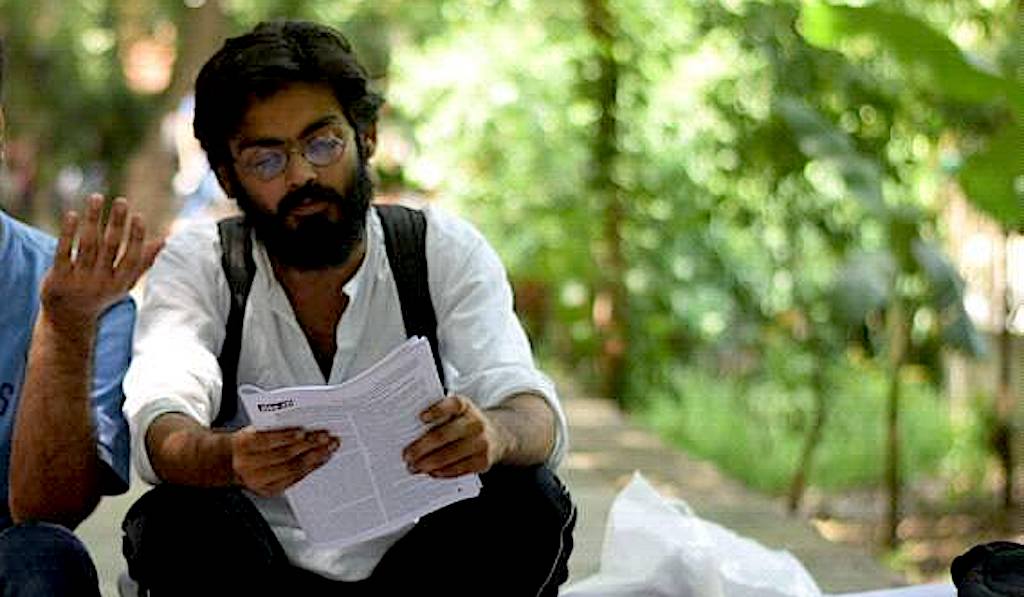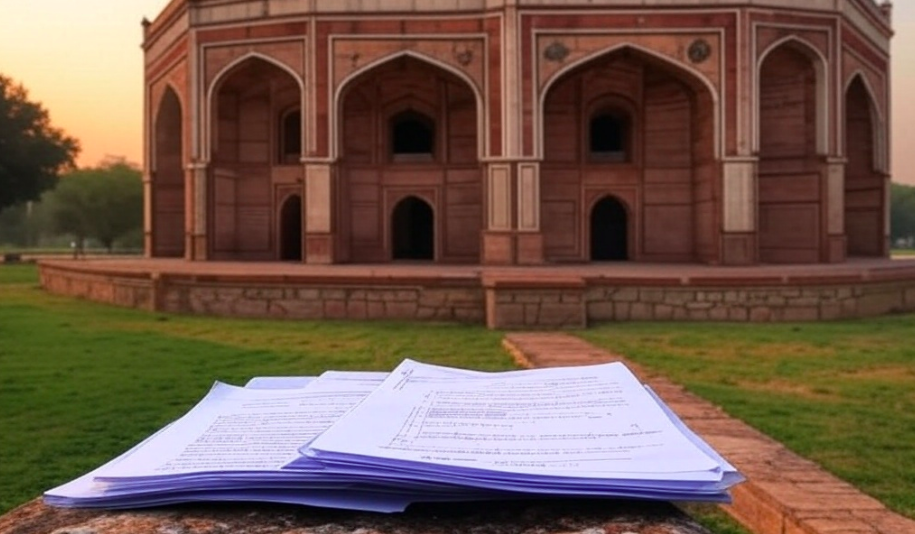Mohd Arham for BeyondHeadlines
A name Sharjeel Imam has been in news for some days now – though ‘infamously’. I didn’t know him before until his small clip went viral. I couldn’t believe what BJP spokesperson Sambit Patra and some news channels were portraying about him, because they have a history of spreading propaganda on the basis of doctored videos. I rushed to look for the whole video and listened to his full speech. Then I went through some of his articles that are also linked to his Facebook profile.
Continuous media trials have kept his views in the dark. He is facing labels like ‘radicalized’ ‘anti-national’ ‘jihadi’ etc, like every assertive Muslim unapologetic about his identity has faced. But the question arises – Shouldn’t we the people of India listen to a young Muslim who wants to express himself about the betrayal, injustice, exclusion and discrimination his community has faced for the several decades? If still, we believe that India is a democratic nation, then we must listen to him and appreciate the voices of our minorities.
To know further about his ideas, I went through his article ‘The Hindu Republic: Seven decades of Muslim exclusion in India’. He argues how Indian ‘constitution aided the process of reducing minorities to the status of second class citizens.’ According to Sharjeel, ‘The main issues which affect the minorities are Bharat, the Union of States, the lack of safeguards for minorities, the definition of Hindu and Scheduled Castes and Cow protection.’
Firstly, he argues that the term ‘Bharat’ reflects an exclusively Hindu imagination of history and the term ‘Union’ was chosen over Federation as nationalists whether Hindu or secular considered a strong centre necessary.’ A strong centre in a diverse country like India means that regional cultures, ethnic groups or for that matter the diversity of this nation has been overlooked and ‘makes the smaller regional communities irrelevant or at least weak politically’, in this way centre could override local aspirations, he reasoned.
He quotes Hukum Singh, Sikh member of the constituent assembly, who complained ‘minorities have been ignored and completely neglected. The provincial units have been reduced to Municipal boards. There is enough provision in our constitution to facilitate the development of administration into a fascist state’. In this way arises a question as to why India was made a union rather than more appropriate term ‘federation’ to undermine and override the aspirations of minorities and smaller communities.
Secondly, he argues about the lack of safeguards for minorities in legislatures. ‘Proportional representation and separate electorates were discussed in constituent assembly’, a demand that was raised by many Muslim leaders but ‘most Congress members refused to consider any Safeguards’. Then he reasons for the demand which was raised by minority leaders like Hasrat Mohani, Hussain Imam and Mehboob Ali Baig that ‘smaller and dispersed communities were rarely strong in one particular territory’, further he elaborates that these communities ‘were not able to elect their representatives’ owing to their small numbers as it is evident from the cases of Gujrat, MP and Rajasthan where Muslims make up around 10% of population but they are spread across the state and ‘have been denied political representation almost completely’.
Thirdly, he touched upon the article 25 of Indian Constitution which provides for ‘freedom of religion’, ‘also directs the government to undertake social welfare and reform for Hindu institutions’ and defines the term Hindu ‘including Sikh, Jain or Buddhist religion’, Muslims and Christians have been excluded from this Hindu or Indic category. According to him, Sikhs and Buddhist have been included, however, there were anti-caste movements. The reason behind this was Professor Pritam Singh’s remarks ‘to prevent the exodus of Dalits from the Hindu fold’ as it is defined in Indian Constitutional Order 1950 that ‘no person who professes a religion different from the Hindu religion shall be deemed to be a member of a scheduled caste’. Also, this definition of SC excluding Muslim and Christians severely affect the backward castes of these communities because they have been denied the ‘affirmative action’ he also point out in his speech that these are his reservations about the constitution which doesn’t discriminate with individuals but communities.
Finally, he takes on article 48 of the constitution which directs the state to make laws ‘prohibiting the slaughter of cows and calves’, many Muslim and tribal leaders questioned this but they were voted down, he recalled. Going back to the 19th century, he recalled many incidents of violence in the name of cow against Muslims. ‘The British administration had tried to defend the Muslim lives on many occasions but the cow protection movement overwhelmed the administration, in this context, the constitution declared this law’, he pointed out.
He also called the Muslims to stop thinking of Congress as a secular party, the same party which has a record of perpetrating discrimination against Minorities.
These were some of his concerns which every citizen of this nation should be aware of. Silencing the dissenting voices will not work, if India has to thrive as a democracy, it must give attention to the questions raised by Sharjeel.
(Author is a student of Bachelor of Education, Government College of Education, Malerkotla.)
Disclaimer: The views or opinions expressed here are those of the authors and do not necessarily reflect the official policy or position of BeyondHeadlines.









